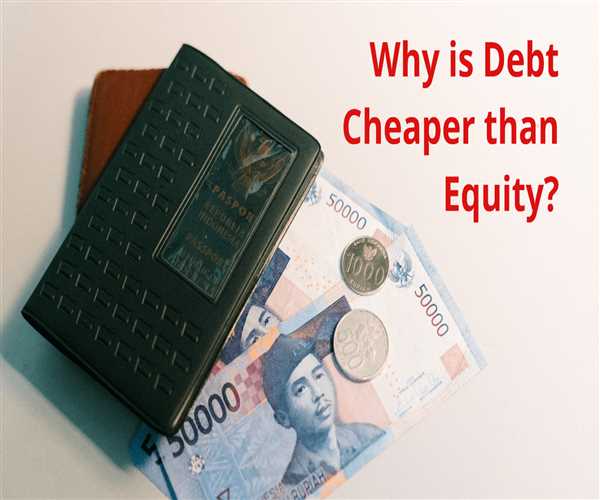Debt and equity are two popular forms of financing for businesses, and the decision between the two often comes down to the question of cost. Both debt and equity have their advantages and disadvantages, and the ultimate choice will depend on a number of factors, including the financial health of the business, the level of risk involved, and the goals of the business owners.
Debt is generally considered to be cheaper than equity, as it typically carries a lower cost of capital. Debt financing involves borrowing money from a lender, such as a bank or an individual, and paying back the loan with interest over a specified period of time. The interest rate charged on debt is usually lower than the return that investors expect to receive from equity investments. This makes debt a more affordable option for businesses with a stable cash flow and a lower level of risk.
However, debt also comes with its own set of risks. If the business is unable to meet its debt obligations, it may be forced into bankruptcy or liquidation. Additionally, debt can limit the flexibility of the business, as repayments must be made regardless of the financial performance of the business.
Equity financing, on the other hand, involves raising capital by selling shares of ownership in the business to investors. In exchange for their investment, shareholders are entitled to a portion of the profits and have a claim on the assets of the business. Equity financing is generally considered to be a more flexible option, as the business is not required to make regular repayments and has more control over its finances.

However, equity is often more expensive than debt, as investors expect a higher return on their investment to compensate for the higher level of risk. This can result in a larger portion of the profits being paid out to shareholders, reducing the profits available for the business to reinvest or distribute as dividends.
In conclusion, the decision between debt and equity financing will depend on the specific needs and goals of the business. Debt financing is generally cheaper but comes with its own set of risks, while equity financing is more flexible but more expensive. The ultimate choice will depend on the financial health of the business, the level of risk involved, and the goals of the business owners.